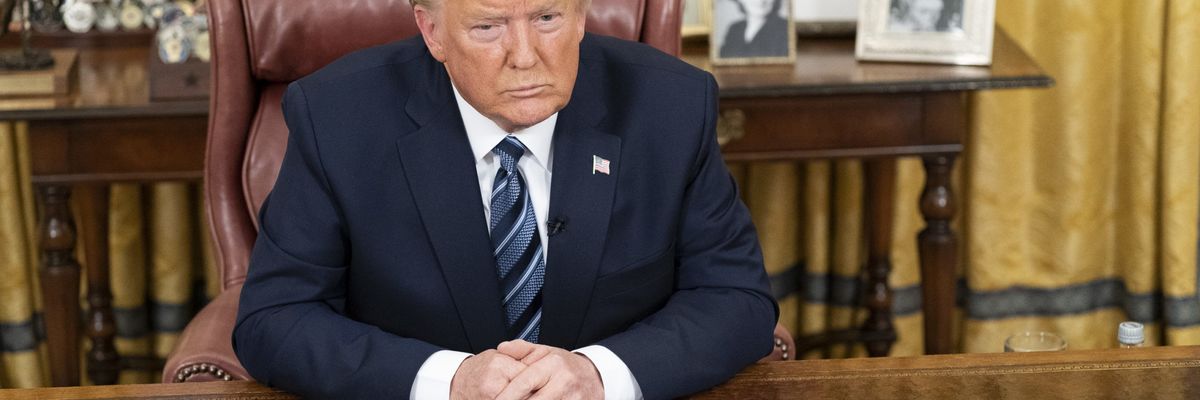Senior advisers for President-elect Trump’s transition team are weighing whether to launch military strikes on Iran’s nuclear program, according to a new report in the Wall Street Journal.
Although relevant deliberations are in early stages, the Journal reports that Trump’s allies and advisers view that Iran’s weakened state, with its ally Syria out and partners Hamas and Hezbollah critically undermined by Israel, presents a “rare opportunity to counter Iran’s nuclear buildup.”
The development follows previous hawkish statements on Iran from both Trump and some White House picks, including national security adviser designee Mike Waltz's recent comments that the incoming Trump administration would embark on a policy of “maximum pressure" against Iran.
“We have to constrain their cash. We have to constrain their oil. We have to go back to maximum pressure, number one, which was working under the first Trump administration,” Waltz said.
On the campaign trail back in September, Trump said he would threaten to “blow [Iran] to smithereens” if a presidential candidate faced threats from Tehran or another “threatening country.” (American intelligence officials had briefed Trump on alleged Iranian threats to assassinate him).
When asked about the prospects of going to war with Iran during an interview with TIME this week, Trump said “anything can happen. It’s a very volatile situation.”
Some incoming Trump officials and associates may believe that attacking Iran may deter its nuclear prospects. But disarmament experts say that striking Iran would likely galvanize it, making it more likely to develop nuclear weapons in response to a military attack.
Iranian officials have repeatedly denied interest in acquiring nuclear weapons Indeed, as Iranian former foreign minister Kamal Kharrazi said regarding possible Israeli strikes on Iranian nuclear facilities: “We have no decision to produce a nuclear bomb, but if Iran is threatened, we will have to change our nuclear doctrine.” And Javad Zarif, Iran’s vice president for strategic affairs, recently wrote in Foreign Affairs that Iran’s new president, Masoud Pezeshkian, “is ready to manage tensions with the United States.”
On one hand, Trump's Iran policy remains pliable as administration positions are finalized and discussions with regional players occur. Meanwhile, some of Trump’s top aides have signaled willingness towards restraint. Back in October, J.D. Vance, now vice president-elect, said “our interest very much is in not going to war with Iran…this is where smart diplomacy really matters.” And Elon Musk, a top Trump confidant, also reportedly met with Iranian diplomats at the U.N. last month in an apparent effort to diffuse tensions.
But many Washington hawks smell an opportunity and are pushing the incoming Trump administration to take a hard line. “I have, for a long time, been willing to call quite unequivocally for regime change in Iran," Sen. Ted Cruz said recently.
Others are hoping that Trump will stick to his instincts on refraining from further involving the U.S. military in more wars, especially in the Middle East and particularly with Iran. “Despite the chaos of his first term, Trump says he still wants a deal,” NIAC president Jamal Abdi recently noted in RS, adding though, that “Trump’s instinct to negotiate is likely to run headlong into his elevation of hawkish advisers who don’t believe in negotiations.”
- Is Israel's plan to draw the US into a war with Iran? ›
- Killing the Iran nuclear deal was one of Trump's biggest failures ›
- Trump signals he may defy hardliners and talk to Iran | Responsible Statecraft ›
- How Iran quietly buttressed its pledge to not build nukes | Responsible Statecraft ›
- Experts: Massive military buildup points to new US strikes on Iran ›
















